Search
Remove Ads
Advertisement
Summary 
Loading AI-generated summary based on World History Encyclopedia articles ...
Search Results

Definition
Vandals
The Vandals were a Germanic tribe who are first mentioned in Roman history in the Natural History of Pliny the Elder (77 CE). The Roman historian Tacitus also mentions them in his Germania (c. 98 CE), though he also refers to them as the...
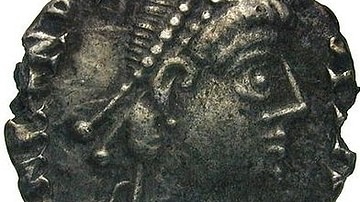
Definition
Gaiseric
Gaiseric (r. 428-478 CE, also known as Genseric and Geiseric) was the greatest king of the Vandals who remained undefeated from the time he took the throne until his death. He was probably born in 389 CE near Lake Balaton (present-day Hungary...

Video
Rise of the Vandals: How the Vandals Took Over Roman Africa
Kings and Generals historical animated documentary series on the history of Rome and Germanic tribes continue with a video on the rise of the Vandals and how an initially minor Germanic tribe managed to take over the Roman province of Africa...
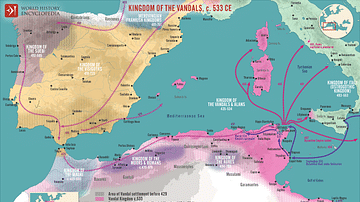
Image
The Kingdom of the Vandals (435–534 CE)
This map illustrates the history of the Kingdom of the Vandals and Alans (435–534 CE), a state established in North Africa after the Vandals, a Germanic tribe, and the Alans, an Iranian-speaking nomadic group from the Sarmatian peoples, migrated...
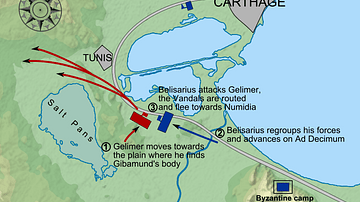
Article
Battle of Ad Decimum
The Battle of Ad Decimum near Carthage, North Africa took place in September 533 CE and was the first major battle of the Vandalic War (533 - 534 CE) between the forces of the Byzantine Empire and the Vandal Kingdom. Leading the Vandals was...
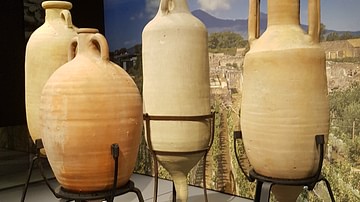
Article
North Africa’s Place in the Mediterranean Economy of Late Antiquity
The Mediterranean Sea was the economic focal point of the Roman Empire. Rome's armies first established an empire across these waters beginning back in the times of the Roman Republic. In 200 CE, the Mediterranean was still the channel that...
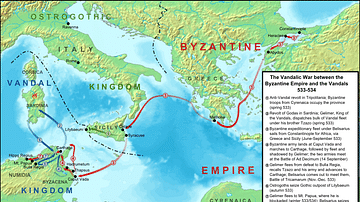
Article
Battle of Tricamarum
The Battle of Tricamarum (533 CE) was the second and last major battle of the Vandalic War (533 – 534 CE). The battle was fought between the forces of the Byzantine Empire under the leadership of the general Belisarius (500 – 565 CE) and...
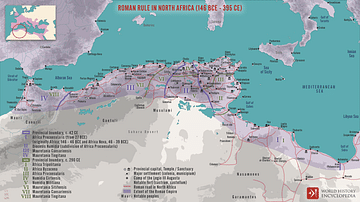
Definition
Mauretania
Mauretania was an ancient kingdom in northwest Africa, encompassing regions of modern-day Morocco and Algeria. Although it shares a name with the modern country of Mauritania, they do not overlap. Ancient Mauretania was named after the Mauri...
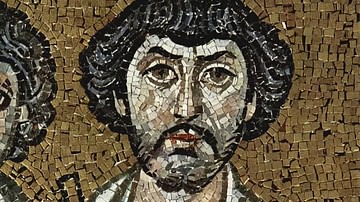
Definition
Belisarius
Flavius Belisarius (l. 505-565 CE) was born in Illyria (the western part of the Balkan Peninsula) to poor parents and rose to become one of the greatest generals, if not the greatest, of the Byzantine Empire. Belisarius is listed among the...
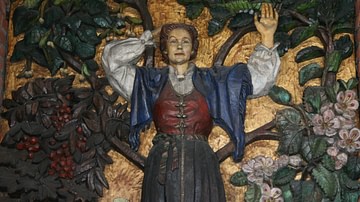
Definition
Frigg
Frigg is a fertility goddess in Norse mythology. She is the wife of Odin, king of the gods, and is the greatest goddess of the Norse pantheon. She is thought to have developed, along with the goddess Freyja, from an earlier fertility deity...